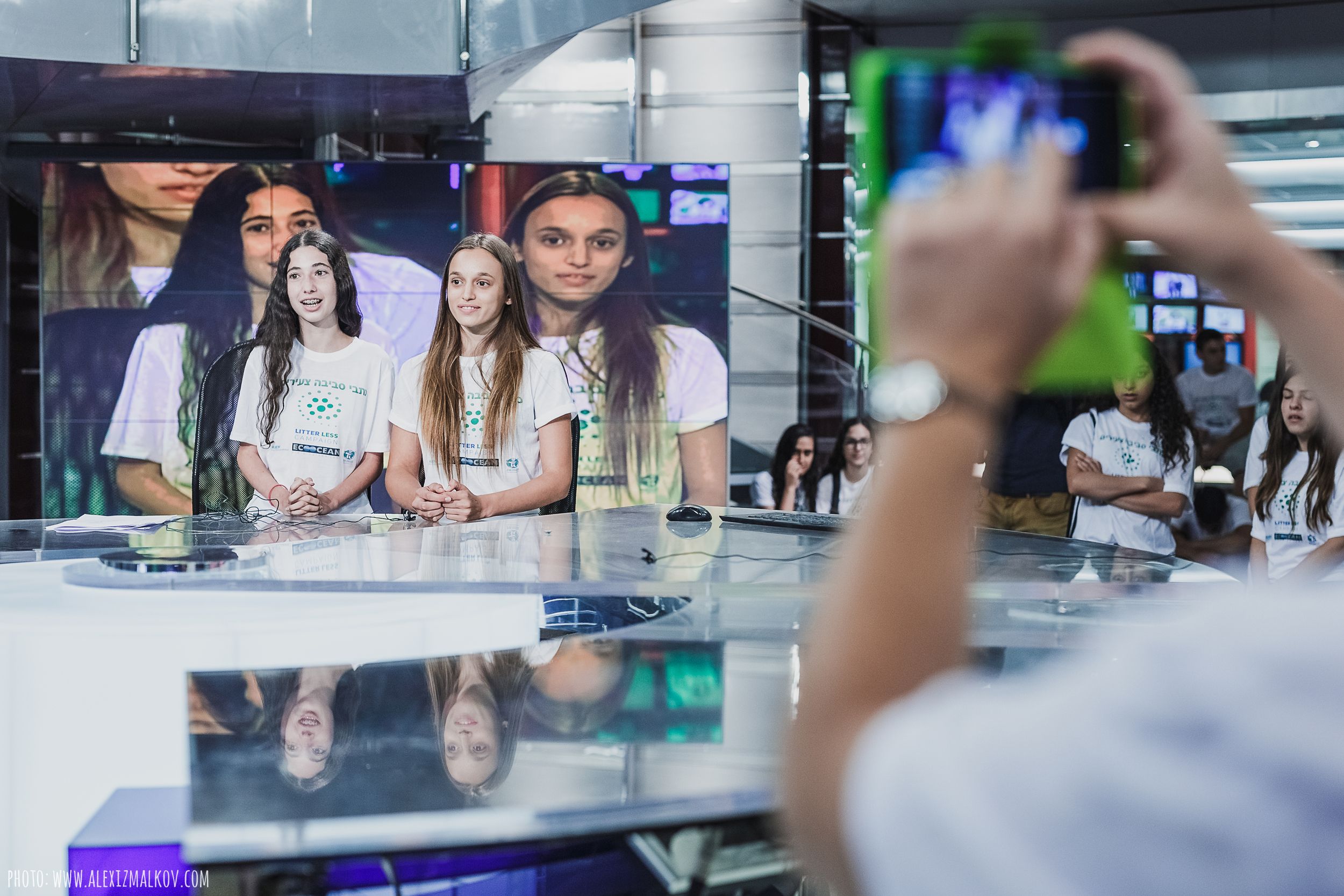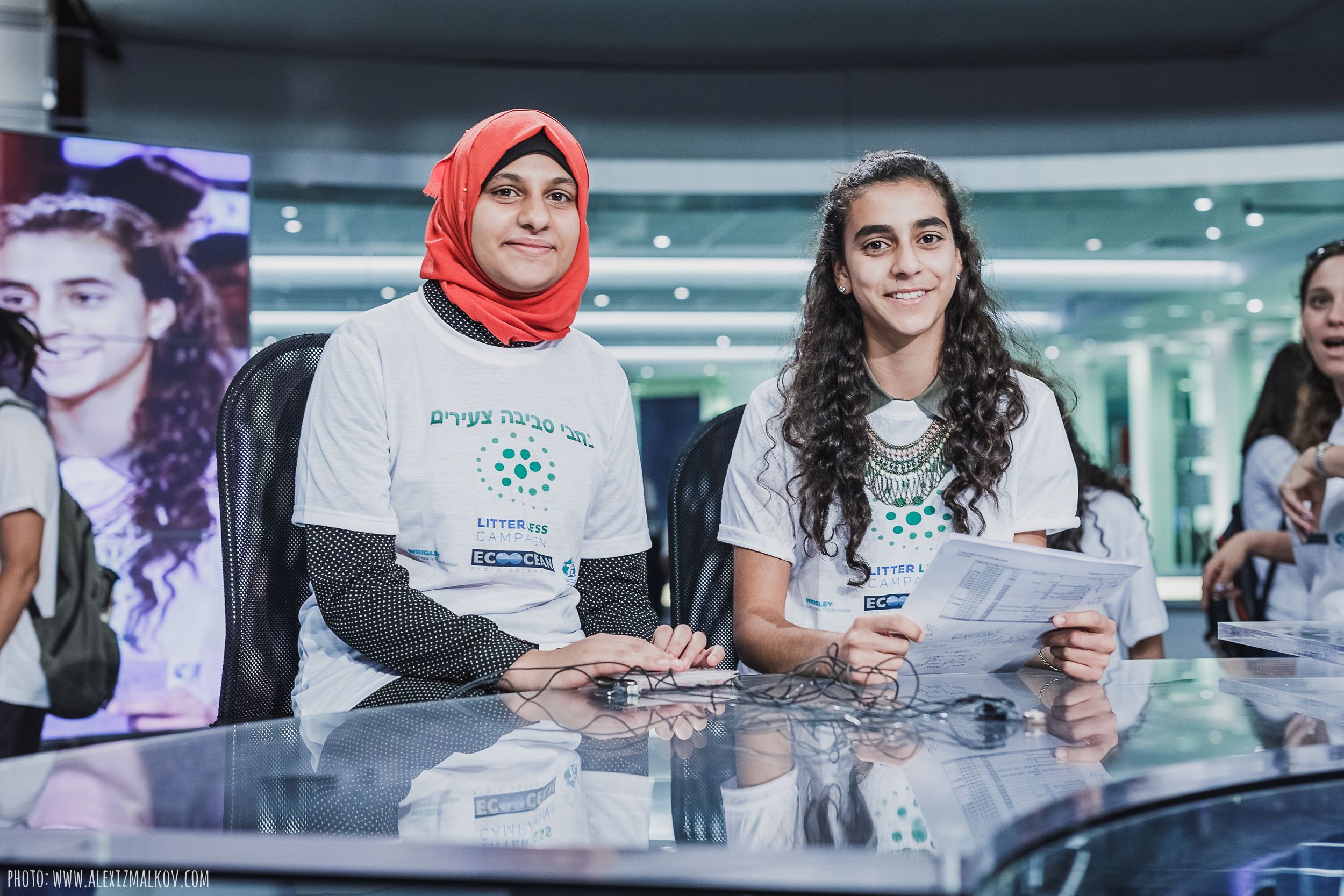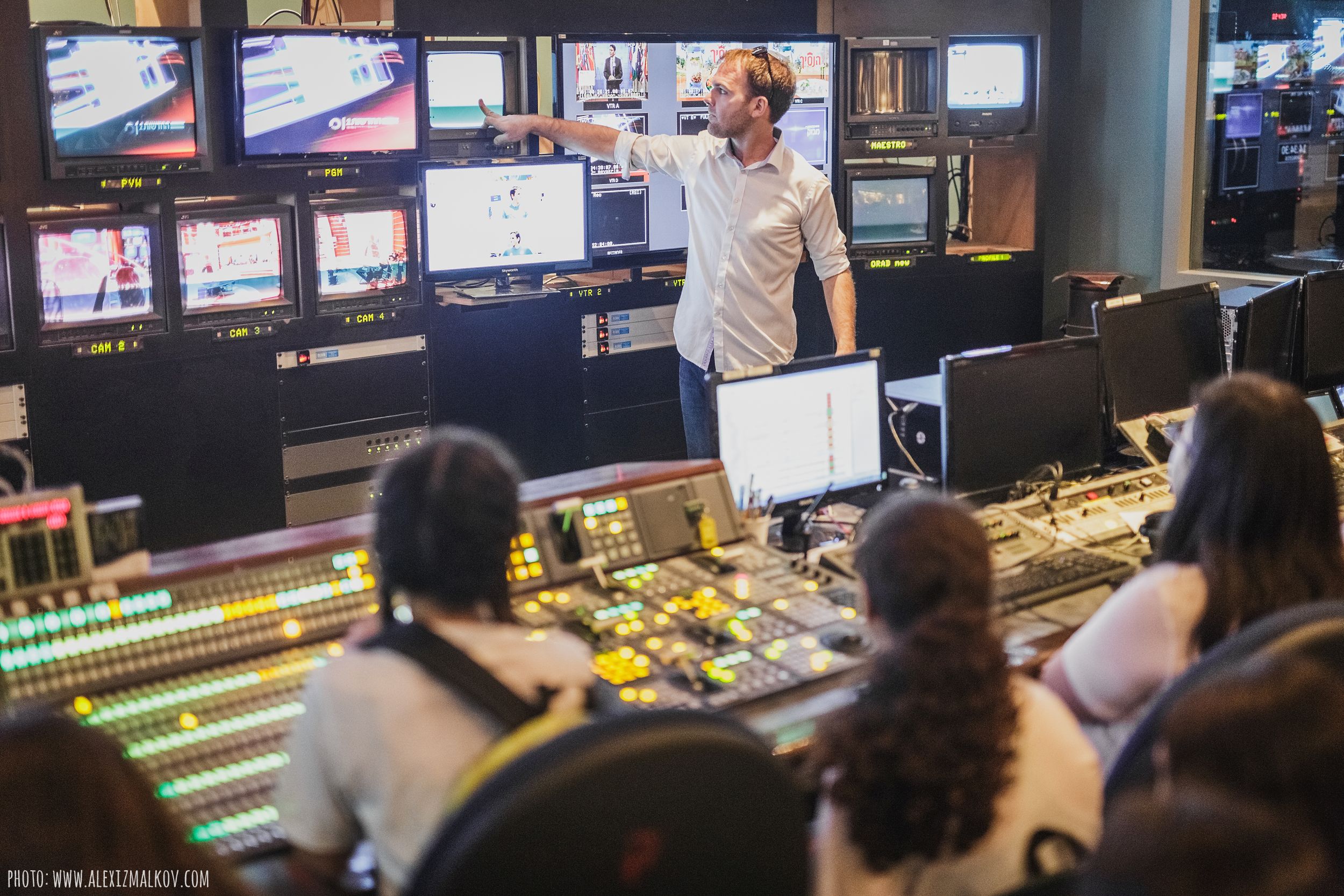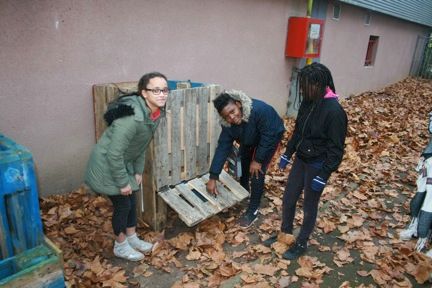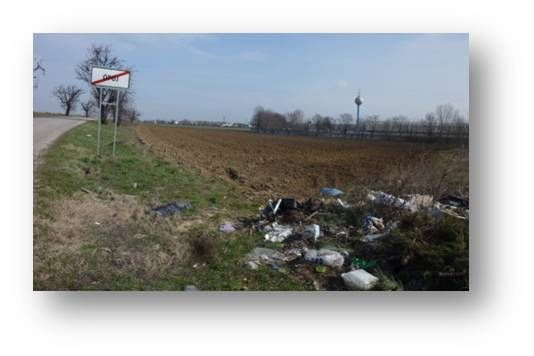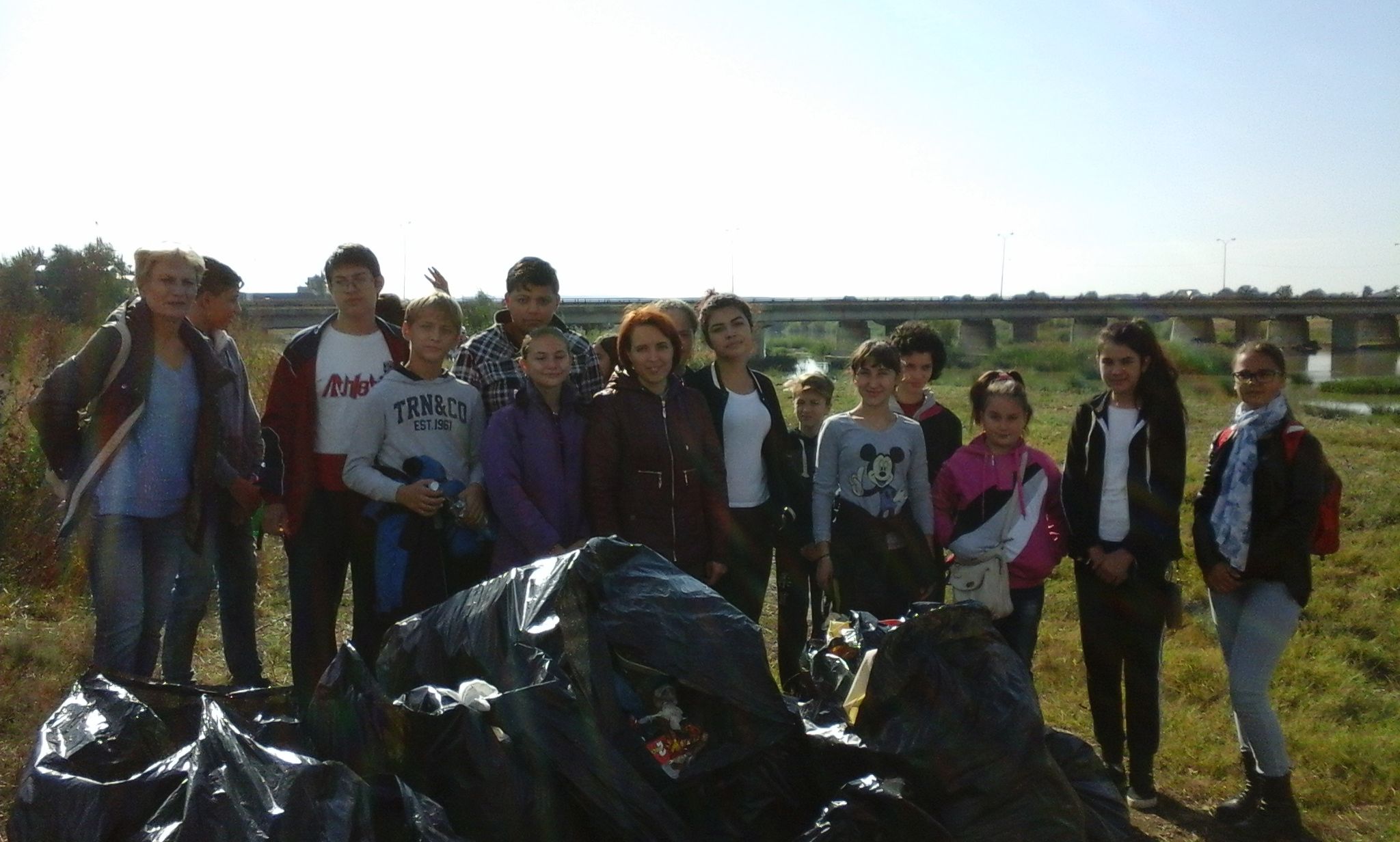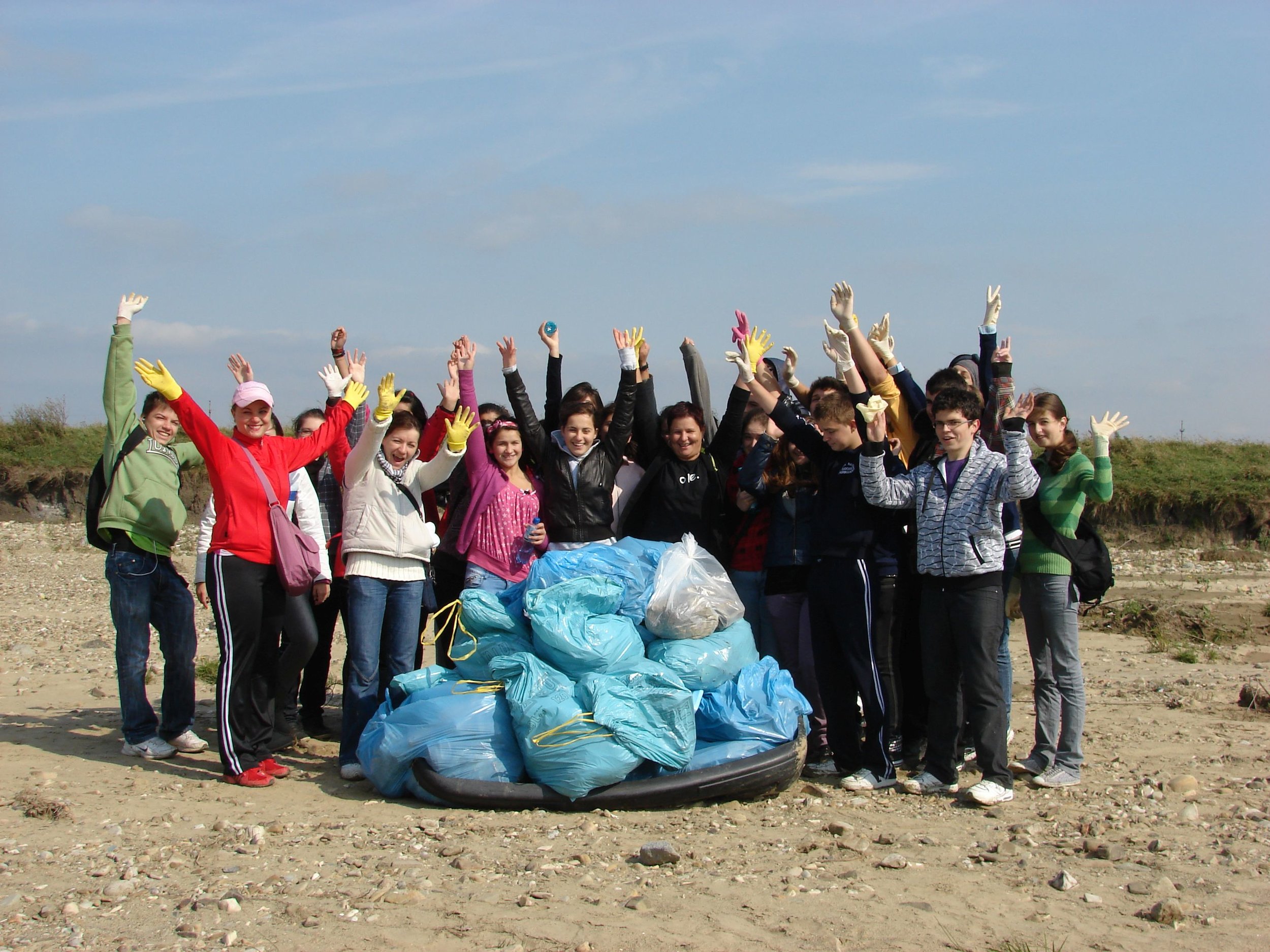S. Seyfullin Secondary School (Burabay village), which joined this year's Litter Less campaign, was a meeting place for participants from other schools: L. Tolstoy School-Gymnasium #4 and Y. Gagarin Secondary school from Stepnogorsk city. In addition, other schools, who are not participants of the YRE programme yet, but are interested in it, were invited to the meeting: Chshuchinsk secondary schools № 1, 2 and 6, Zelenoborsk school and Okazhetpes school.
At this meeting, YRE students and teacher shared experience and result of their work in Litter Less campaign , as well as conducted training workshops for students of different age. The primary school students learned to create a filter for water from improvised means, students of 5-7 grades were involved in active game and the older ones discussed the topic "The ideal reporter, the ideal article, the perfect photo and video" during workshop conducted by students and teachers from L. Tolstoy School-Gymnasium #4 .
"Throughout the event, there was a feeling of benevolence, openness, attention genuine interest, activity and enthusiasm of children in the performance of tasks," - Viktor Maslov, one of workshop leaser, expressed his opinion on the event.
NEW ZEALAND
Five schools from the Rotorua area are incorporating a community action day event into an existing annual ceremony called the One Chance Youth Awards. These awards celebrate young people doing amazing things in their community. There will be representatives from each school who will be raising awareness about the importance of keeping their local area beautiful and promoting the local branch (Keep Rototua Beautiful). There will be over 400 students at the event and some of the students will be filming this event as part of their YRE projects.
NEW ZEALAND
Ao Tawhiti Unlimited Discovery school held discussions about litter problems they see and what they’d like to do about them, the girls came up with the idea of making cotton/beeswax sandwich wraps to sell to try and replace all the ‘glad wrap’ being used in lunchboxes and at the cafeteria on campus.
There is a higher goal to try and persuade the on-site cafeteria (part of University of Canterbury) to use ‘Happywraps’ (the name of their product) to sell with their sandwiches rather than wrap them in plastic wrap. The idea is similar to the sustainable takeaway coffee cups that people can buy instead of using cardboard cups each time. There are also plans to sell the wraps at a local preschool that is having a ‘litter-less’ lunchbox focus this term.
FRANCE
On 22nd May, this high school has organized an award giving ceremony, for their prize in the Article 15-18 category in the LLC. Their project Terracycle consists in recycling old pens; all the people from the school community involved in the project were present at the ceremony to reward the winning students. Their town's mayor and the president of the local structure of waste processing were also there to celebrate and congratulate the students for their hard work.
This project is also a wonderful opportunity for the students to participate in other actions in the next few days. They will go on a visit of a methanisation plant located in their town. Also, they will soon welcome a journalist from a young newspaper specializing in impact journalism. A busy agenda for our winners!
FRANCE
On 18th May, the school organised a prize-giving ceremony to reward the students who won prizes for the 2017 edition. This year, this high school has hit the jackpot as two of their teams have won a prize: Isis and Justine got the best Article 15-18 category, and Clémence, Allan and Cassandra got the best Video 15-18 category for the LLC.
It was a splendid occasion to enhance their work, and to promote the programme among the school community. The students received their diplomas and the whole assembly enjoyed a warm cocktail. This event was also a great opportunity to draw up a review of all the actions the high schoolers have led, such as a cleanup of their local riverbanks, a bike day or a clothes swap.
FRANCE
In Beaumarchais middle school in Meaux city, the students built a composter themselves. After finishing it, some of them were dedicated to training the canteen staff, other students and teachers to use it on a daily basis.
Moreover, they have edited a school newspaper on sustainable development issues and they have spread it among their families in order to share good practises. This middle school is a “REP” school (high priority educational network). The Litter Less Campaign and the funds allocated to the Community Action Days contribute to empower the students and to give them a concrete responsibility in their school environment - they can be artisans, reporters, or a communications specialists.
SLOVAKIA
YRE students from Zakladna skola Jana Palatrika Majchihov participating in the Litter Less Campaign investigated the problem of litter dumping on the border between two villages. The article presented in the local newspaper and addressed to the mayors of the two villages was very powerful. The mayors together negotiated and arranged a common clean-up of the area in a short time. The area remains clean up to now.
ROMANIA
YRE students initiated waste segregation in the school in Raduti and influenced the local municipality to take action. Starting this year, the City Hall of Radauti managed to access a program that consists of collecting selective waste in personalised trash bags from every house. Also, the city hall started an awareness and education campaign for the citizens regarding recycling, selective collection of waste and storing dried and wet waste. Students are hoping that other environmental problems that were raised by them will have an echo to the local authorities, but also to the citizens as well as to our local community. Slowly, but surely, their efforts for a cleaner environment are taking form. It is very well shown that the prizes from the five Litter Less Campaigns are justified through strong dissemination in the local community and we are empowering the local authorities and citizens from the community.
Coordinators: Prof. Liviu Gheorghe Hatnean from the National College “Eudoxiu Hurmuzachi” and Cornelia Hatnean from the “Bogdan Voda” Gymnasium School”, Rădăuți/ Romania
ISRAEL
Through the Litter Less Campaign (LLC) in YRE, a group of boys aged 11-12 dealt with a very local problem - there was no bin on their football pitch! There was not even a plastic bottles recycling one. In extremely hot Israel you have to take water with you if you are going to play football! The boys took photos and wrote about the problem. They sent it all to the mayor of Jerusalem, Mr. Nir Barkat. Not only did they receive a reply, the situation was fixed two months later! The boys were so proud of themselves and told me that "even the big boys thanked them" (you know how important that is). And I personally have to say: changing things that matter to you when you are 12 years old gives you the confidence to change bigger things when your 16, 18 or 20. This experience for those kids can definitely change the way they believe in their capabilities.
FRANCE
The value of recycled paper in Collège Guy Mollet (France)
The pupils are currently working on recycled paper.
They produce not only recycled paper but also pieces of art by using used paper and old newspapers. The school Christmas tree is also made of recycled cardboard. This recycling activity should reach all students by the end of the school year.
The students also took a trip to a centre that collect clothes where they discovered the importance of recycling clothes. They are in the process of producing a report in order to raise awareness on the issue not only in their school but also amongst their families and the inhabitants of their city.
FRANCE
On Wednesday the 30th of November and Thursday the 1st of December, the students carried out a waste collection mission on the Mugel beach in La Ciotat.
Armed with gloves and garbage bags, they paced the beach in search of waste. They were surprised to find household waste coming from the pipes, such as cotton buds.
After the collection, all the waste was categorized and recorded using a detailed sheet containing the different categories of waste (plastic bags, cans, bottle stoppers, cigarettes ...).
The data sheets were then sent to the Observatory for Waste in the Water Environment (ODEMA). The ODEMA made it possible to rank the amount of waste by type. Unsurprisingly, it was plastic that was number one.
This output showed that the waste is not static and can go a long way before ending up on our beaches ... Now it is up to the students to go back to the source and identify precisely where it comes from.
KAZKAHSTAN
In this academic year, two Almaty Secondary schools, №50 and №32, joined the Litter Less campaign and YRE programme. Students were actively involved into the work and on the 25th of November they participated in the workshops to create environmental articles and photo reports which was carried out by the YRE programme national operator, Mariya Tyuryuchsheva.
Young reporters learned what a lead is, why an article needs to have a hero and what the main issues that reporter should cover in their work. In addition, the students discussed the environmental problems associated with garbage and waste.
KAZKAHSTAN
On the 22nd of October two significant events took place in the Secondary school №16 of Temirtau: the start of the Litter Less Campaign and the annual school conference.
At the opening of a new phase of the campaign the students talked about recearch which was already completed or has been planned. For example, Gummetali Mammadov and Tanya Shcherbakova, 6th grade students, collected garbage for about a week and created the garbage monster. They counted what kind of garbage is "most popular" in the school, where it comes from and what we need to do to have less litter. How to beat the "garbage monster" in school has become a key issue for all participants!
But the event wasn't limited only to presentations of research: the guests and the participants were divided into groups and received an assignment - to draw up an action plan for the Litter Less campaign.
Everyone was active: the older students and the newcomers from 5th grade, who generated a large number of useful ideas. The students are ready to implement these new ideas in their lives.
Special guests of the event were students from boarding school №2 for children with special needs, who also participate in the campaign. They spoke about their work in the campaign, such as training for kindergartens and using waste materials in art.
KAZKAHSTAN
On November 15, the World Day of recycling, the participants of the Litter Less campaign conducted training for Primary school students of 2nd and 3rd grades. The children learned why this day is celebrated, what litter is, where it comes from and why it is dangerous. Young reporters explained to them how to minimize and sort waste and shared the knowledge and information they had gained through YRE research.
On this day the first results of the school waste paper collection contest were also announced. "This competition is held from October to April and covers the entire school. Currently the leader is Zharlikov Yuri, a 7th grade student, who has already collected over 139 kg of waste paper", - said Lydmila Bushman, teacher supervisor of YRE programme and Litter Less campaign.
SLOVAKIA
Young Reporters decided to organize a Garbage Day for younger pupils with a goal to increasing their knowledge and providing an interesting experience.
The day started at the school club by gathering of all 3rd grade pupils. A presentation about waste given by Young Reporters was followed by a discussion about waste separation at home and some common mistakes were pointed out.
Next came a surprise: pupils dressed up as walking garbage boxes – one each of blue, red, green, and yellow. Each “box” introduced itself and what it “eats“. Then a mixture of waste was emptied on the ground and young pupils were asked to sort them out into corresponding boxes.
The day continued with creative workshops and activities e.g. a “garbage path” to experience various kinds of waste barefoot, recognition of types of waste with a blindfold and finally a search for a treasure guarded by a waste mummy.
Older pupils built-up compost bins from old wooden pallets to produce compost at the school garden.
At the end of the day, each classroom received a new bin for collection of organic waste.
Article written by Young Reporters: http://www.mladireporteri.sk/den-odpadov&theme=litterless
SLOVAKIA
Young Reporters from Zakladna skola Ing. O. Kozucha decided to take another step in order to reduce amount of waste at their school. They identified organic waste as the biggest problem (paper waste, milk cartons, plastics, glass, aluminium cans, electric waste, and batteries have already been collected for recycling).
The pupils first addressed the canteen manager and found out that peels from fruits and vegetables are dumped as communal waste, though there is a compost pile in the school garden. They suggested to change the habit.
To find out if their classmates would be willing to collect remains of fruit to extra bins, they prepared a short questionnaire, and disseminated it to more than 180 pupils.
Based on good results, new waste bins have been bought and installed in three places: next to the entrance to school canteen, at the changing room for pupils and in front of the school. Above the bins, a poster with instructions has been placed.
Furthermore, the pupils negotiated the interval of emptying the bins with the headmaster, and have taken responsibility for this job.
The pupils believe, that thanks to implementation of organic-waste collection, there will be enough compost for planting more medicinal herbs.
Article written by Young Reporters: http://www.mladireporteri.sk/co-s-bioodpadom-zo-skolskej-jedalne-0&theme=litterless
CHINA
December 7th, 2016, the launch ceremony of the 6th year of Litter Less Campaign was held in a primary school in Nanjing, China.
300 representatives from CEEC, Wrigley Confectionery China, pilot schools and Environmental Protection Bureau, Education Bureau, Urban Administration Bureau of Nanjing, attended the ceremony.
Litter Less Campaign is a joint initiative of the Wrigley Company Foundation and the Foundation for Environmental Education (FEE) on litter. In China, it’s implemented by Center for Environmental Education and Communications of Ministry of Environmental Protection (CEEC).
ROMANIA
The YRE National Winners Workshop was held between 3-5 June 2016, near the town of Radauti, Romania. 30 people in total attended the three-day workshop.
On day 1 the programme included the arrival of guests and an introduction with ice-breakers.
On day 2 participants met with the local authorities, the Wrigley representative in Romania, and held discussions with journalists from two TV channels. An excursion in the surrounding area was organised in order for the participants to be able to gather materials for their assigned tasks.
On the final day of the workshop, during a session, students worked in groups with the materials they gathered and produced an article, a video and a picture based on the themes they explored. The results were presented to the audience and were followed by a discussion.


CANADA
YRE Canada created an exhibit of this year’s 1st, 2nd, and 3rd place national competition winners as another way to engage the community. It is currently being displayed at different community events, such as festivals, in Toronto. The exhibition has so far been attended by 5,000 people.
The YRE Canada exhibit was on display at the Riverside Eats & Beats Festival in Toronto on 4 June, and included the participation of local restaurants, retailers, musicians and artists, and thousands of people in attendance. Canadian Young Reporters were able to speak with members of the public about the Young Reporters for the Environment programme and the Litter Less Campaign, and had a sign-up sheet for teachers and students who wanted to get involved.
ISRAEL
Israeli students paid a visit to the biggest TV news outlet, Israeli Channel 2.
The students visited the main studio where the main news programme is being broadcast. Later, the students went to the control room, where they met a producer who explained the process of making the news. The producer spoke about how to make people interested in environmental issues, in a country where most people mostly care about security and politics.
After lunch, each group presented their work to other students. On the subject of marine litter, students were given another presentation by an EcoOcean expert, about the most recent research on marine plastics and micro plastics.
The day ended with the awards ceremony, where YRE Competition participants received their prizes and diplomas.

